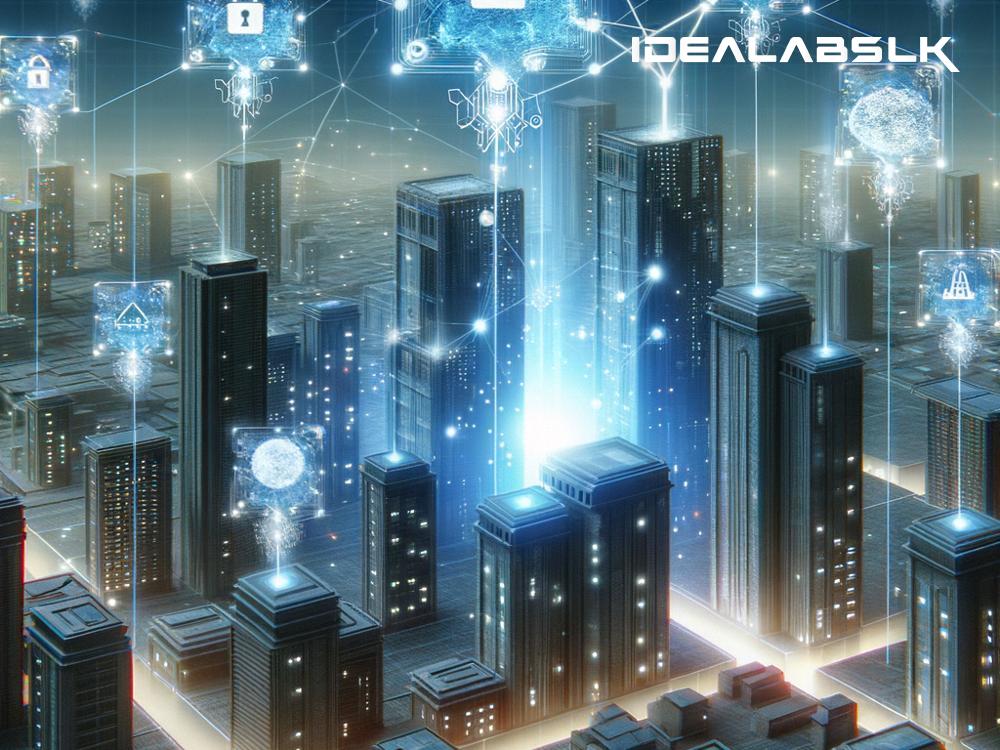Embracing the Future: Using Blockchain for Digital Real Estate Deeds
In today’s digital age, almost every aspect of our lives has been touched by technology. from the way we communicate, to how we shop, and even how we manage our finances. Yet, when it comes to buying or selling property, we often find ourselves wading through piles of paperwork, navigating complex legal channels, and waiting for what seems like an eternity for transactions to complete. But what if we could simplify this process, making it more secure, efficient, and transparent? Enter blockchain technology and the digital transformation of real estate deeds.
What is Blockchain?
Before we dive deep into its application in real estate, let’s break down what blockchain actually is. Think of it as a digital ledger – much like a notebook that records transactions – except this notebook is shared across a global network of computers. Each ‘page’ of the ledger is a block, and they are all chained together (hence blockchain) in a secure and immutable manner. This means that once a piece of information is added to the blockchain, it cannot be altered or deleted, ensuring a high degree of trust and security.
The Traditional Real Estate Process: A Brief Overview
The traditional process of buying or selling property is often lengthy and convoluted. It involves multiple steps, including verifying the title of the property (proving the seller has the right to sell it), inspections, obtaining financing, and the actual transfer of deeds. Each step requires paperwork, verification by various parties, and, often, a significant amount of time.
The Game-Changing Potential of Blockchain in Real Estate
Blockchain technology has the potential to revolutionize how we handle property transactions. By digitizing real estate deeds and storing them on a blockchain, we can create a system that is:
-
Secure: The cryptographic nature of blockchain ensures that once a transaction has been recorded, it can't be tampered with. This adds a layer of security against fraud.
-
Transparent: All parties involved in the transaction can have access to the same information and transaction history, eliminating disputes and the need for intermediaries.
-
Efficient: Transactions can be completed faster because blockchain eliminates the need for third-party verification at each step. Automating these processes reduces the time and cost associated with buying or selling property.
Implementing Digital Real Estate Deeds
To use blockchain for digital real estate deeds, the property details and ownership information would first need to be digitized and recorded on the blockchain. This process involves:
- Verification: Ensuring the property details and ownership records are accurate before they are added to the blockchain.
- Smart Contracts: Utilizing smart contracts (self-executing contracts with the terms of the agreement directly written into code) to automate the sale process, including payments and the transfer of ownership.
- Digitization: Converting traditional paper deeds into digital form and recording them on the blockchain.
This system not only simplifies the process but also reduces the risk of fraud, as the property's transaction history and ownership are transparent and tamper-proof.
The Challenges and Future Outlook
While the benefits of using blockchain for digital real estate deeds are significant, there are challenges to its widespread adoption. Regulatory hurdles, the need for a digital infrastructure, and ensuring the security and privacy of sensitive information are among the top concerns. Additionally, there will need to be a cultural shift, as both the industries and consumers embrace this new way of transacting.
However, the future looks promising. Various governments and private organizations around the world are already experimenting with blockchain technology for land registry and real estate transactions. As the technology matures and these challenges are addressed, it is likely that we will see a more widespread adoption of blockchain for digital real estate deeds.
In Conclusion
The integration of blockchain technology into the real estate sector has the potential to make the process of buying and selling property much more straightforward, secure, and efficient. While it's true that we may be a few years away from seeing a complete overhaul of the traditional system, the wheels of change are undoubtedly in motion. Blockchain is paving the way for a future where digital real estate deeds are the norm, heralding a new era of transparency and trust in property transactions. As we move forward, embracing this technology could well be the key to unlocking a more streamlined and user-friendly real estate market for everyone involved.

